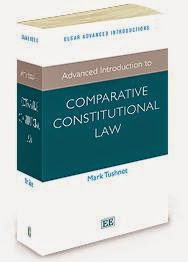 The Indigenous Nations & Peoples Law eJournal has published "Legal Modernity and Early Amerindian Laws" by William Conklin. It is now available on SSRN.
The Indigenous Nations & Peoples Law eJournal has published "Legal Modernity and Early Amerindian Laws" by William Conklin. It is now available on SSRN.This essay claims that the violence characterizing the 20th century has been coloured by the clash of two very different senses of legal authority. These two senses of legal authority correspond with two very different contexts of civil violence: state secession and the violence characterizing a challenge to a state-centric legal authority. Conklin argues that the modern legal authority represents a quest for a source or foundation. Such a sense of legal authority, according to Conklin, clashes such a view with the unwritten laws of early Amerindian traditional societies. Conklin argues further that by arguing that the Amerindian sense of legal authority has been concealed in the dominant modern sense of legal authority.


